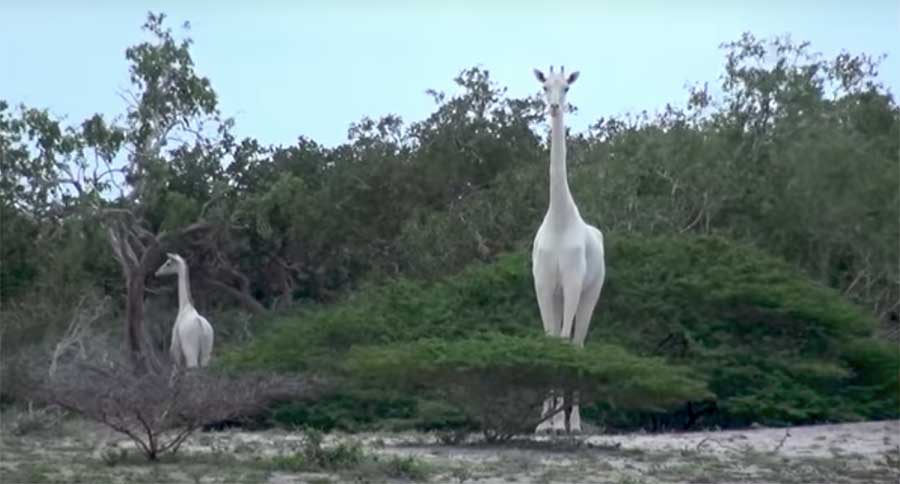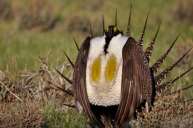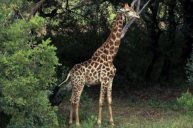Poachers have unfortunately delivered the death blow to the world's only female white giraffe and her calf in Kenya, reports say.
According to conservationists, the deceased bodies of two extremely rare white giraffes, a mother and her 7-month-old calf, have been discovered in Garissa County in northeastern Kenya. All signs point to an illegal killing conducted by poachers, officials say.
The situation reiterates the importance of the battle against poaching, especially in the wilds of Africa where so many rare animals reside.
A press release from the Garissa County Conservation Center was posted to Facebook on March 10, confirming the deaths.
The statement said, according to images sent in by the community, the body of the mother giraffe was "in a skeletal state after being killed by armed poachers."
According to Newsweek, the body of the adult female giraffe was found three to four months after it was poached, and the calf's body was found nearby, with its death presumably caused by starvation after the mother died.
The deaths leave only one white giraffe, a young male also birthed by the deceased mother, remaining in the world.
Here is some of the minimal camera footage that was captured of the white giraffe and her calf, in this case by National Geographic, and posted to YouTube several years ago.
Mohammed Ahmednoor, the manager of Ishaqbini Hirola Conservancy, had this to say:
This is a very sad day for the community of Ijara and Kenya as a whole. We are the only community in the world who are custodians of the white giraffe.
Its killing is a blow to tremendous steps taken by the community to conserve rare and unique species, and a wake up call for continued support to conservation efforts.
This is a long term loss given that genetics studies and research which were significant investment into the area by researchers, has now gone to the drain.
As Africa and other continents continue to struggle with poaching, cases like this will hopefully be a wake up call and inspire more support for their efforts.
Giraffes, a unique species on their own, rarely exhibit the condition known as leucism, a genetic condition that differs from albinism. Leucism is a partial loss of pigmentation in skin, hair, or feathers but does not affect the eyes.
Though rare, it's not entirely unique, and has been detected in a variety of animals including other giraffes in the past. Now that there remains only one known giraffe with leucism in the world, it remains to be seen if the genes will be passed on to future generations.
NEXT: LIONS EAT POACHERS WHO TRESPASSED ON SOUTH AFRICAN GAME RESERVE
WATCH




